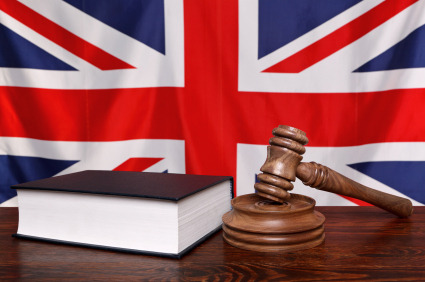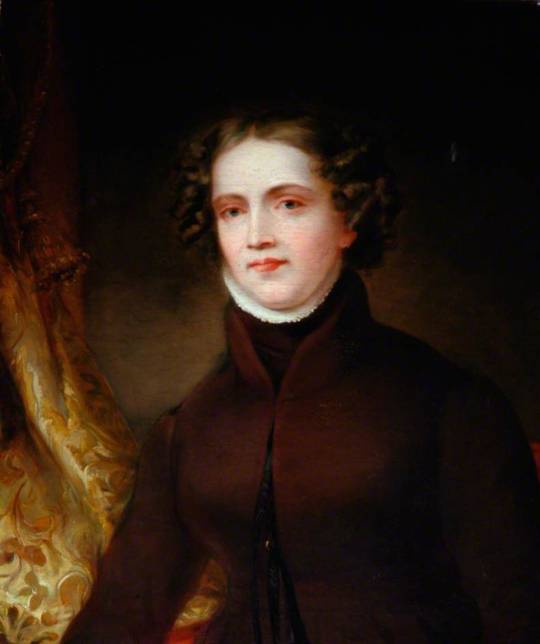Photo

During the nineteenth century, British laws and political institutions imposed limitations on same-sex interactions in order to keep the idea of British masculinity intact. The preservation of this idea would negatively affect those who were gay. It is important to note that gay and lesbian relations were not scrutinized to the same extent. This can be seen through the lives of Anne Lister and Oscar Wilde.
0 notes
Photo

Buggery Act of 1533
Prior to the nineteenth century, the Buggery Act of 1533 was created. This act specified that unnatural sexual acts were considered to be illegal such as sodomy. In Jeffrey Weeks’s book titled Coming Out: Homosexual Politics in Britain, from the Nineteenth Century to the Present, he points out that the word buggery had different definitions throughout the nineteenth century. In 1817, buggery was identified as oral sex when the law was used to convict a man who had oral sex with a boy. Buggery would later be referred to as a form of birth control by Sir George Richards in 1854. The term would then be associated with homosexuals in 1870 when two transvestites were arrested and were quickly checked by law enforcement for any signs of anal penetration. This interaction between law enforcement and the transvestite shows that sodomy was seen as a homosexual act.
Source:
Brady: 86
(Coming Out) Weeks: 13-14
0 notes
Photo

Protecting British Masculinity
Throughout most of the nineteenth century, British laws and political institutions such as the Home Office did not find it urgent to control sex between males. In Sean Brady’s book titled Masculinity and Male Homosexuality in Britain, 1861-1913, he explains that the government’s sentiment towards sex between males was a way to protect British masculinity. The government believed that if they actively tried to control this sexual interaction between men, that it would lead other nations to recognize that masculinity among British men has decreased. Implementing a law that specifically targeted sex between men would essentially signal to other nations that there are homosexuals among the male population of Britain and therefore showing that British men are losing their masculinity. In order to avoid this type of situation, the government decided to stay silent on the matter.
Source:
Brady: 89
0 notes
Photo

Government Inaction Tested
The Home Office is one of the political institutions that were responsible for the enforcement of laws. This institution made it their policy to not take legal action on a case regarding sex between males. In 1877 the Home Office would be tested on this policy when a scandal regarding the Post Office was brought to their attention. The scandal implicated James Smith who was a City of London secretary at the time, Smith had been accused of sexually corrupting three telegraph boys. This situation showed that Home Office officials such as A. C. Hepburn wanted to prosecute Smith only if they were certain that Smith would be convicted. The certainty of Smith’s conviction was important since it would decrease the chances that there would long trial that could attract public attention. The Home Office would go on to prosecute Smith because there was evidence of him corrupting the boys while on duty as a Crown official. Although the Home Office chose to prosecute the Smith case they did not threaten their nation's masculinity, this was largely due to the quiet nature of the trial and the lack of reporting on the trial.
Source:
Brady 89-90
0 notes
Photo

Clause Eleven in The Criminal Law Amendment Act of 1885
In Sean Brady’s book titled Masculinity and Male Homosexuality in Britain, 1861-1913, he explains that the main purpose of The Criminal Law Amendment Act of 1885 was to create an effective way to prosecute people who were involved in prostituting young girls. Clause eleven of this law made acts of gross indecency between males, illegal and the punishment for breaking this law was imprisonment for up to two years. Henry Labouchere created this clause and the government approved it since it would be related to sexual acts performed by prostitutes. In Jeffery Week's paper titled “Inverts, Perverts and Mary - Annes”, he explains that homosexuals were negatively affected by clause eleven since it made all sexual interactions between men illegal. These individuals would become targets of blackmail and violence since they would do anything to not be convicted by this clause. Being convicted would mean that they would be labeled as homosexuals by society. Sean Brady argued that clause eleven was not a new law but instead it reinstated that certain sexual acts were illegal. The Buggery Act had been used to convict men who were involved with other men sexually throughout the nineteenth century.
Source:
Brady: 94
(Coming Out) Weeks: 15
(Hidden) Weeks: 199
0 notes
Photo

British Government Takes Action With the Passage of Clause Eleven
Although the British government decided to take control of the sexual acts between men in 1885, clause eleven was not implemented on purpose by the House of Commons. The clause was added to the amendment at night with a few Members of Parliament present. The M.P.s allowed the clause to stay in place since it would speed up the process of passing the amendment that would help stop the highly publicized issue of regarding the prostitution of young girls. The amendment provided a cover for clause eleven and without it, the public would be aware that British men are losing their masculinity to the public.
Source:
Brady: 94 & 117
(Coming Out) Weeks: 15
0 notes
Photo

Oscar Wilde was born in 1854; he was an Irish writer who wrote novels and plays. Wilde went to Britain in the hopes of jump-starting his literary career. While living in Britain he would create many successfully literary works such as The Picture of Dorian Gray and The Importance of Being Earnest. Although Britain brought Wilde much success it was also the cause of his downfall. His relationship with Lord Alfred Douglas would become known to Douglas's father, the Marquis of Queensberry, in 1895. In April of that year, Wilde sued Queensberry for libel after Queensberry called him a homosexual. The libel case would be lost and soon after Wilde would be arrested for gross indecency after evidence of his relations with young men came to light. Wilde was charged under clause eleven since that law states that it is illegal for men to take part in any act of gross indecency with other men in Britain. He would be found guilty and would be sentenced to two years of hard labor. David Schulz points out in his paper titled Redressing Oscar - Performance and the Trials of Oscar Wilde, that the trials had focused on whether Wilde had a penis. This interest in Wilde’s penis shows that the government had wanted to separate him from the rest of the middle-class men. If Wilde did not have a penis then he is not a man and thus not a threat to British masculinity. Wilde did have a penis, but this idea that he did not have one shows that the government was concerned about preserving British masculinity.
Sources:
Schulz: 39 & 54
http://www.bbc.co.uk/history/historic_figures/wilde_oscar.shtml
0 notes
Photo

Invisible Women
During the nineteenth century, sexual relationships between women did not cause much of a concern for the British government. In Anna Clark’s paper titled Anne Lister’s Construction of Lesbian Identity, she explains that women during that era were able to embrace each other through hugs and kisses without any suspicion of being a lesbian. Society viewed intimate relationships between women as normal. This idea was put to the test when two female teachers were awarded damages when they were accused by their student’s relative of being lesbians in 1811. The judge who overlooked the case ruled in the teacher's favor because he believed that women could not be in sexual relationships with each other. Esther Newton explains why the judge would have this belief in her paper titled The Mystic Manish Lesbian: Radclyffe Hall and the New Woman. Newton explains that during the Victorian era, sex only occurred when there was a penis involved which meant that sex occurred when a man was present. Women during this era lived in a society that was dictated by men while they were invisible without the presence of a man.
Sources:
Clark: 24
Newton: 561
0 notes
Photo

Anne Lister was born in Britain in 1791. She kept a diary of her throughout most of her life that gave an insight into her life as a lesbian. In Martha Vicinus, paper titled “They Wonder to Which Sex I Belong: The Historical Roots of the Modern Lesbian Identity”, she explains that Lister had sexual relations with married and single ladies. Lister had fallen in love with Mariana Belcomb, the two women would continue their relationship for years even after Belcomb got married. Vicinus also points out that Lister dressed like a man and that people who saw her thought that she looked unnatural. Even though Lister stood out in a crowd because of the way she dressed she was never arrested or put on trial for being unnatural. She was able to live her life without the intervention of the government unlike Oscar Wilde because during this era because it was inconceivable for sex to occur without the presence of man.
Source:
Clark:28 & 43
Vicinus: 481
http://www.bbc.co.uk/history/historic_figures/wilde_oscar.shtml
1 note
·
View note